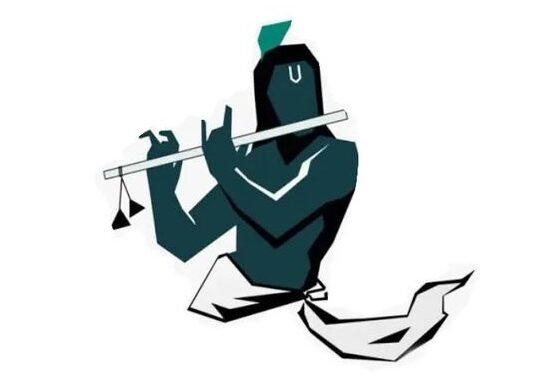Achyutam Keshavam Krishna Damodaram
Rama Naraynam Janaki Vallabham
Kaun Kehta Hai Bhagvan Aate Nahi
Tum Meera Ke Jaise Bulate Nahi
Achyutam Keshavam Krishna Damodaram
Rama Naraynam Janakivallabham
Kaun Kehta Hai Bhagvan Khaate Nahi
Ber Shabri Ke Jaise Khilate Nahi
Achyutam Keshavam Krishna Damodaram
Rama Naraynam Janaki Vallabham
Kaun Kehta Hai Bhagvan Sote Nahi
Maa Yashoda Ke Jaise Sulate Nahin
Achyutam Keshavam Krishna Damodaram
Rama Naraynam Janaki Vallabham
Kaun Kehta Hai Bhagvan Nachthe Nahi
Gopiyo Ki Tarah Tum Nachathae Nahi
Achyutam Keshavam Krishna Damodaram,
Rama Naraynam Janaki Vallabham,
Naam Japate Chalo Kaam Karte Chalo
Har Samay Krishna Ka Dhyaan Karte Chalo
Achyutam Keshavam Krishna Damodaram,
Rama Naraynam Janaki Vallabham,
Yaad Aayegi Unko Kabhi Na Kabhi
Krishan Darshan To Denge Kabhi Na Kabhi
Achyutam Keshavam Krishna Damodaram
Rama Naraynam Janaki Vallabham
The lyrics you provided are in praise of Lord Krishna, celebrating various aspects of his divine personality and actions.
Here is the English translation of the lyrics:
Achyutam Keshavam Krishna Damodaram (O Unchanging Lord, Kesava, Krishna, Damodara)
Rama Naraynam Janaki Vallabham (Rama, Narayana, Consort of Janaki)
Kaun Kehta Hai Bhagvan Aate Nahi (Who says God does not come?)
Tum Meera Ke Jaise Bulate Nahi (You do not call like Meera)
The lyrics express devotion and describe the different roles and forms of Lord Krishna. Here’s a breakdown of the verses:
- Achyutam Keshavam Krishna Damodaram: Refers to various names of Lord Krishna highlighting his divine qualities and pastimes.
- Rama Naraynam Janaki Vallabham: Acknowledges Lord Rama, Narayana, and Janaki’s consort, emphasizing the unity of different divine aspects.
- Kaun Kehta Hai Bhagvan Khaate Nahi: Challenges the notion that God does not eat.
- Ber Shabri Ke Jaise Khilate Nahi: Draws a parallel to the story of Shabri, who offered ber (wild berries) to Lord Rama with pure devotion.
- Maa Yashoda Ke Jaise Sulate Nahin: Compares Lord Krishna to baby Krishna who does not sleep like Mother Yashoda struggles to put him to sleep.
- Gopiyo Ki Tarah Tum Nachathae Nahi: Compares the Lord’s divine dance to the joyful dances of the Gopis.
- Naam Japate Chalo Kaam Karte Chalo: Encourages continuous remembrance and devotion to the name of Lord Krishna while engaging in worldly duties.
- Har Samay Krishna Ka Dhyaan Karte Chalo: Emphasizes the constant meditation on Lord Krishna.
- Yaad Aayegi Unko Kabhi Na Kabhi: Assures that the remembrance of God will bear fruit sooner or later.
The overall message is to maintain devotion to Lord Krishna in various aspects of life, highlighting the divine nature of the Lord and encouraging continuous remembrance and meditation on his name. The song reflects the bhakti (devotion) tradition in Hinduism.
